As October begins, we are getting closer and closer to Advent – and more excited about this year’s Advent devotional from Forward Movement, Show Me Your Ways, O Lord.
Last week on the blog, we met two of the four authors for this devotional. This week, we welcome the rest of the authors to our blog and your inbox. Get to know Kim Fox and Nancy Frausto in this author Q&A. (And don’t forget to order your copy of Show Me Your Ways, O Lord from the Forward Movement website!)
Can you introduce yourself briefly to our readers? Tell us how you got started as a writer.
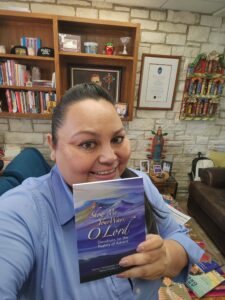
Nancy: Hola, I am the Reverend Nancy Frausto. I have the honor of serving as Director of Latinx Studies and Lecturer for Multicultural Ministries at Seminary of the Southwest in Austin, TX.
It’s difficult to answer this question because though I have always wanted to be a writer I don’t necessarily consider myself one. Though I will share that in middle school I wrote short stories and really bad poetry all the time!
Kim: My name is Kim Fox. I serve as priest, missioner, and on diocesan staff in North Dakota and am a poet in my parallel vocation. I was honored to be able to write a successful United Thank Offering grant in environmental reparations for one of our Native congregations, St. Paul’s, White Shield, and am the new Province VI UTO Board representative.
I have been writing since childhood and have been fortunate to publish several books of poetry (published under Kimberly L. Becker), as well as having written for Forward Day by Day in the past.
 What was the most enjoyable part of the writing process? What about the most difficult part?
What was the most enjoyable part of the writing process? What about the most difficult part?
Kim: Engaging with Scripture and allowing the Spirit to move through me, even when topics were difficult. Bringing an Indigenous (Cherokee) viewpoint to my reflections.
As for the most difficult part: one of my meditations has a trigger warning, since it references abuse. I did have some communication with the editor about whether this was appropriate for the book, but I did feel strongly it should be included, so I’m glad it was accepted, as, sadly, I believe many readers will be able to relate to that theme.
Nancy: The most enjoyable part is having the finished product, or the closest one can get to the finished product. I savor the moment when I see I have accomplished a goal. Deadlines are not my friends, so being able to see the complete product after much anxiety and procrastination always brings me joy.
The most difficult part is getting started. I am old-school and I love putting pen to paper. That is my first and most dreaded step… actually getting started. But once I do, and everything starts to flow, the sense of dread returns only after I am done and think about what others will think once they read my work!
Where do you typically write?
Kim: In a comfy large cream-colored chair in my living room, although I have also been known to dictate ideas while driving many miles across Northwest North Dakota!
Nancy: Wherever inspiration hits. Sometimes it is easier for me to start writing after I have gone for a walk and gathered my thoughts. If I just sit at a desk all I end up doing is doodling in my notebook.
Do you have a favorite Advent or Christmas tradition?
Nancy: As a Mexican, posadas are my favorite tradition! It is all about recreating the Holy Family’s journey and seeking a safe place to lay one’s head…. and of course, we cannot forget that once a safe place has been found, we honor the hospitality of the hosts by celebrating God’s abundance with lots of yummy food, good music and wonderful fellowship.
 Do you have a favorite psalm?
Do you have a favorite psalm?
Kim: Being from the mountains of North Carolina, my favorite psalm has always been “I will lift up my eyes unto the hills” (Psalm 121)
Nancy: Psalms of lament are my favorite because I just feel they are raw prayers offered up to God. In my most vulnerable and painful moments, when the sorrow and grief are too great and words just can’t capture the pain, the psalms of lament remind me that we God is present even when I am in too much pain to feel God’s presence.
Is there anything else you’d like to share with our readers?
Nancy: I would just like to give my appreciation to Forward Movement for the opportunity to be part of this project. I feel so honored that my Advent reflections share the same space with other women of color. I hope this book helps the reader through their Advent journey.




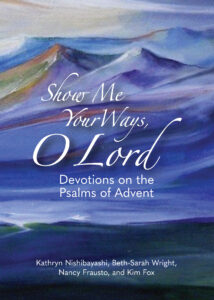
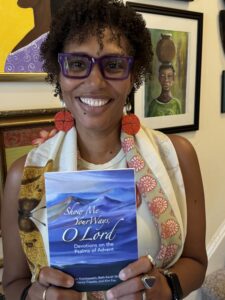
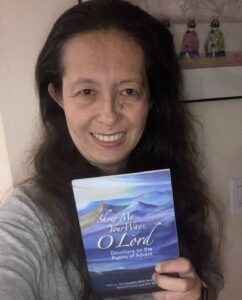
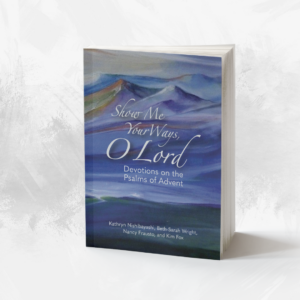 What was the most enjoyable part of the writing process? What about the most difficult?
What was the most enjoyable part of the writing process? What about the most difficult?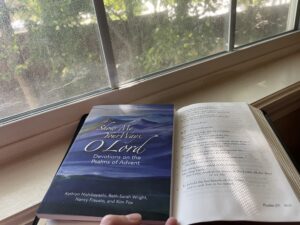 Do you have a favorite psalm?
Do you have a favorite psalm? You may know the Rev. Tim Schenck as one half of the Supreme Executive Committee— he’s the creator of the wildly popular online devotion
You may know the Rev. Tim Schenck as one half of the Supreme Executive Committee— he’s the creator of the wildly popular online devotion 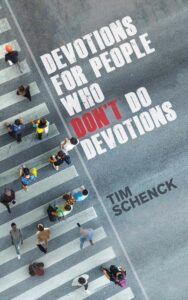 What is your hope for this book?
What is your hope for this book?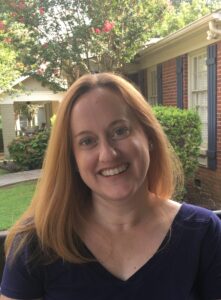 Amanda Perkins McGriff is an Episcopal priest who lives in Memphis, Tennessee, with her husband Wil, their son Darwin, and their retired greyhound, Goose. She currently serves as a chaplain at Le Bonheur Children’s Hospital and as curate at St. George’s Episcopal Church.
Amanda Perkins McGriff is an Episcopal priest who lives in Memphis, Tennessee, with her husband Wil, their son Darwin, and their retired greyhound, Goose. She currently serves as a chaplain at Le Bonheur Children’s Hospital and as curate at St. George’s Episcopal Church.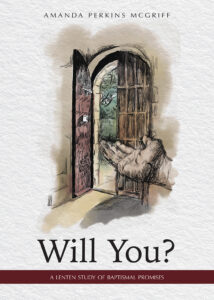
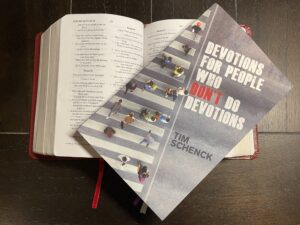 The world really doesn’t need one more devotional book. We have devotional books for people who do too much, devotions for people who want to do more, devotions for animal lovers, devotions for pizza lovers, and devotions for people who love putting Ikea furniture together.
The world really doesn’t need one more devotional book. We have devotional books for people who do too much, devotions for people who want to do more, devotions for animal lovers, devotions for pizza lovers, and devotions for people who love putting Ikea furniture together.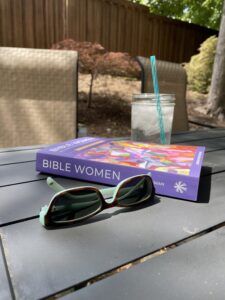 Dear friends in Christ,
Dear friends in Christ,
 Jay Sidebotham has served as a priest in the Episcopal Church for more than 30 years. He also enjoys creating artwork, including cartoons, reflecting life in the church. Before ordination, he worked in an animation studio that produced Schoolhouse Rock cartoons and then as an art director in several advertising agencies. Some say he is still in advertising.
Jay Sidebotham has served as a priest in the Episcopal Church for more than 30 years. He also enjoys creating artwork, including cartoons, reflecting life in the church. Before ordination, he worked in an animation studio that produced Schoolhouse Rock cartoons and then as an art director in several advertising agencies. Some say he is still in advertising.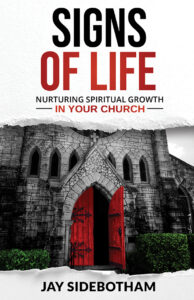 How did the idea for this book develop?
How did the idea for this book develop?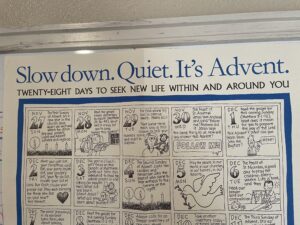 You’re well known in the Episcopal world for your prolific cartoons, found on the “Slow down. Quiet.” calendars and elsewhere. How is your creative process different for writing and visual art?
You’re well known in the Episcopal world for your prolific cartoons, found on the “Slow down. Quiet.” calendars and elsewhere. How is your creative process different for writing and visual art?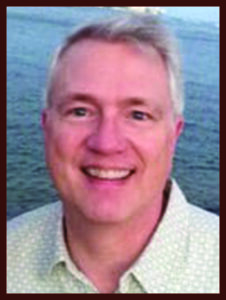 Peter M. Wallace, an Episcopal priest serving in the Diocese of Atlanta, is the executive producer and host of the Day1 radio/podcast and internet ministry (
Peter M. Wallace, an Episcopal priest serving in the Diocese of Atlanta, is the executive producer and host of the Day1 radio/podcast and internet ministry (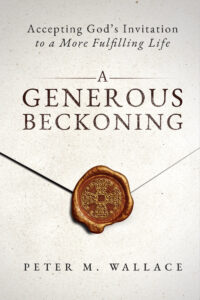 Can you share a moment where you experienced God in your daily life?
Can you share a moment where you experienced God in your daily life?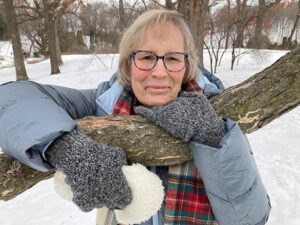 Women of the Bible have been trapped in dry and dusty literary caskets for centuries—but no more. In a groundbreaking book, author Lindsay Hardin Freeman identifies every woman who speaks in the Bible, providing their words, context, and historical background. This beloved book has recently been expanded to feature new ways to use and study the words and wisdom, updated content for today’s context, and 93 prayers—one for each woman who speaks in the Bible. Learn more about Bible Women’s expanded edition in this author Q&A.
Women of the Bible have been trapped in dry and dusty literary caskets for centuries—but no more. In a groundbreaking book, author Lindsay Hardin Freeman identifies every woman who speaks in the Bible, providing their words, context, and historical background. This beloved book has recently been expanded to feature new ways to use and study the words and wisdom, updated content for today’s context, and 93 prayers—one for each woman who speaks in the Bible. Learn more about Bible Women’s expanded edition in this author Q&A. How has writing the 2nd edition been different from the first?
How has writing the 2nd edition been different from the first?